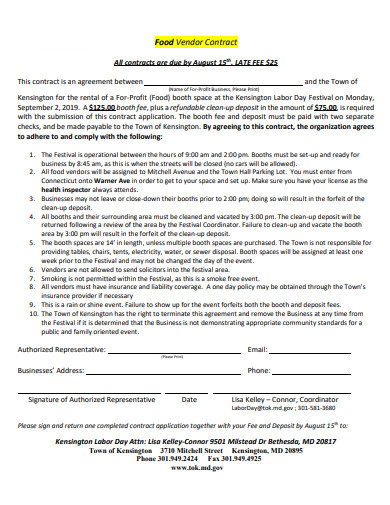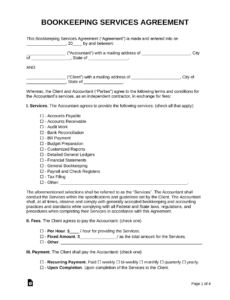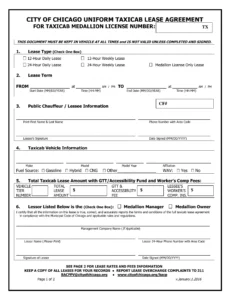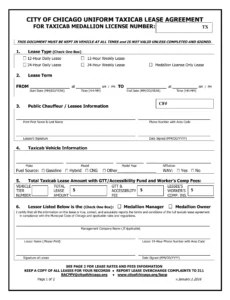In the bustling world of business, efficiency, clarity, and robust communication are not just buzzwords; they are the bedrock of sustainable success. Nowhere is this more evident than in managing professional relationships, especially with your suppliers. For any business dealing with the sourcing of goods, particularly in the demanding food industry, a well-defined agreement isn’t just a nicety—it’s an absolute necessity.
This article delves into the critical role of a food supplier agreement sample, offering insights into its purpose, benefits, and how such a structured document can transform your operational flow. It’s designed for forward-thinking entrepreneurs, procurement managers, and business owners who understand that clear, professional documentation is a cornerstone of productivity, organization, and smart business communication. Think of this as your practical guide to elevating how you handle one of your most vital business relationships, ensuring everyone is on the same page from day one.
The Power of Professional Documentation: Clarity, Legality, and Trust
Imagine a business relationship built on guesswork or verbal understandings. While trust is vital, relying solely on it can quickly lead to misunderstandings, disputes, and significant financial setbacks. This is precisely why professional documentation, like a comprehensive food supplier agreement sample, holds such immense power in the business world. It serves as a single source of truth, outlining expectations and obligations for all parties involved.

Such documents provide undeniable clarity, reducing ambiguity around product specifications, delivery schedules, payment terms, and quality standards. From a legal standpoint, a properly executed legal contract acts as a binding record, offering protection and recourse should issues arise. Furthermore, presenting a professionally crafted agreement fosters a sense of trust and professionalism, signaling to your partners that you operate with integrity and attention to detail. This foundational approach supports long-term, mutually beneficial relationships.
Why Structured Templates Are Your Business Superpower
Embracing structured templates, forms, or well-designed agreement layouts is truly a superpower for any busy professional. They eliminate the daunting task of starting from scratch, saving countless hours that can be redirected to strategic business growth. A robust contract template provides a clear framework, ensuring that no critical details are overlooked, which is often the case with ad-hoc arrangements.
Beyond time savings, these standardized tools promote consistency across all your vendor relationships, simplifying management and review processes. They serve as a comprehensive checklist, reminding you of key clauses, compliance records, and essential terms of service that might otherwise be forgotten. Ultimately, leveraging a professional layout for your business documentation enhances both your internal organization and your external professional image. It’s about working smarter, not harder.
Beyond Food: Adapting This Template for Diverse Business Needs
While our focus today is on the invaluable food supplier agreement sample, the principles behind structured documentation are universally applicable. The core framework of a good agreement can be incredibly versatile, serving as a robust foundation for a wide array of business interactions. With minor adaptations, the very layout you’d use for a food supplier can be repurposed for entirely different sectors.
Consider how easily the document could be tailored for a service agreement with a marketing agency, outlining deliverables, timelines, and payment structures. It’s also perfect for establishing the terms of a business partnership, detailing responsibilities, profit-sharing, and dispute resolution mechanisms. Even for freelancers, contractors, or rental agreements, the underlying structure of a clear, comprehensive contract template provides the essential backbone for a legally sound and mutually understood arrangement. The key is to recognize the underlying components of a good agreement and adapt the specifics to fit the unique context.
When a Food Supplier Agreement Sample Shines Brightest
Understanding when to deploy a robust agreement is just as important as knowing how to use it. A well-prepared food supplier agreement sample isn’t just for large corporations; it’s a vital tool for businesses of all sizes whenever a supply chain relationship is initiated or significantly altered.
Here are some scenarios where leveraging a comprehensive food supplier agreement sample proves most effective:
- Establishing New Supplier Relationships: Before placing your first order, a clear agreement sets the stage for mutual understanding regarding product quality, delivery schedules, pricing, and payment terms. This proactive step prevents future disputes.
- Onboarding Critical or High-Volume Suppliers: For suppliers who provide essential ingredients or large quantities of goods, a detailed contract offers crucial protection and ensures continuity of supply.
- Negotiating Long-Term Contracts: When committing to a supplier for an extended period, the document should clearly define pricing adjustments, performance metrics, and renewal conditions.
- Implementing Specific Quality or Safety Standards: For businesses with strict requirements (e.g., organic, allergen-free, HACCP certified), the agreement can legally bind suppliers to adhere to these critical standards.
- Managing Multiple Suppliers for the Same Product: To ensure consistency and compare performance, each supplier can be held to the same clear standards outlined in a uniform agreement.
- When Dealing with Complex Logistics: If your supply chain involves intricate delivery schedules, temperature controls, or specific packaging requirements, the agreement can spell out these details unequivocally.
- Reviewing or Renegotiating Existing Agreements: Even for established relationships, periodically updating the business file ensures that terms remain current, fair, and aligned with evolving business needs.
Designing for Success: Making Your Agreements User-Friendly and Effective
A beautifully structured agreement isn’t just about legal jargon; it’s about effective communication and user experience. Whether it’s a physical printout or a digital document, its design and formatting significantly impact its usability and the likelihood of it being read and understood. Think about your audience: both your internal team and your suppliers need to navigate this form easily.
Start with clear, concise language. Avoid overly legalistic terms where plain English will suffice, ensuring everyone can grasp the content without needing a legal dictionary. Use headings and subheadings, perhaps even <h3> for very detailed sections, to break up large blocks of text, making the layout scannable and digestible. Bullet points, like the ones used above, are excellent for lists of deliverables, responsibilities, or conditions, improving readability dramatically. For digital versions, ensure the file is easily shareable and readable across various devices. Consider interactive elements for document signing platforms, making the process smoother. For print, use a legible font size, ample white space, and logical pagination. A well-organized, professionally formatted contract reflects your company’s attention to detail and commitment to clear business communication.
When it comes to the actual content, focus on ensuring all critical clauses are present and unambiguous. This includes sections on pricing, payment terms, delivery schedules, quality control, dispute resolution, intellectual property, confidentiality, and termination clauses. The goal is to anticipate potential issues and address them upfront within the template, providing a clear roadmap for the relationship. Regular review of your standard document is also crucial, ensuring it remains current with industry standards and legal requirements.
The Enduring Value of Smart Documentation
In the fast-paced landscape of modern business, time is a precious commodity, and clarity is non-negotiable. Embracing a structured approach to your professional documents, whether it’s a detailed supplier agreement or any other critical business file, is a strategic investment in your company’s future. It streamlines operations, mitigates risks, and fosters stronger, more reliable partnerships built on a foundation of mutual understanding and respect.
Ultimately, by leveraging a well-crafted template, you’re not just creating a piece of paper; you’re cultivating a culture of precision, professionalism, and proactive problem-solving. It’s a powerful tool that saves time, ensures legal clarity, and acts as a cornerstone of transparent communication. Make smart documentation a priority, and watch your business thrive with greater organization and fewer headaches.


